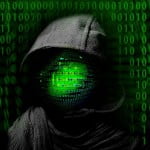
PISCATAWAY, NJ, Aug. 23 2017 — IEEE, the world’s largest technical professional organization dedicated to advancing technology for humanity, and the IEEE Standards Association (IEEE-SA), today announced the approval of the IEEE P7130—Standard for Quantum Computing Definitionsproject. The new standards project aims to make quantum computing more accessible to a larger group of contributors, including developers of software and hardware, materials scientists, mathematicians, physicists, engineers, climate scientists, biologists and geneticists.
IEEE P7130 will define terms related to the physics of quantum computing including quantum tunneling, super position, quantum entanglement, as well as other related terms and terminology that will be updated as technological advances are made.
“While quantum computing is poised for significant growth and advancement, the emergent industry is currently fragmented and lacks a common communications framework,” said Whurley (William Hurley), chair, IEEE Quantum Computing Working Group. “IEEE P7130 marks an important milestone in the development of Quantum Computing by building consensus on a nomenclature that will bring the benefits of standardization, reduce confusion, and foster a more broadly accepted understanding for all stakeholders involved in advancing technology and solutions in the space.”
“IBM is part of quantum information’s history, since its foundation more than 30 years ago. And we’ve been championing important terms, metrics, and scientific methods ever since,” said Jerry Chow, manager, Experimental Quantum Computing, IBM Research and IEEE P7130 working group participant. “This standards project will help anyone from students to seasoned quantum scientists nucleate around a common language, while keeping up with the field’s rapid pace of change, and further accelerate pioneering experiments and explorations in quantum computing.”
“1QBit works with a variety of classical, quantum and otherwise non-standard processors, which necessitates communication between multiple external teams, across a wide range of industries, discussing many different types of computing systems,” said Andrew Fursman, CEO 1Qbit and IEEE P7130 working group participant. “IEEE P7130 “Standard for Quantum Computing Definitions” provides a valuable service to 1QBit, our partners in quantum computing, and the many industries with which we intersect.”
“Confusions exist on what quantum computing or a quantum computer means,” added Professor Hidetoshi Nishimori of the Tokyo Institute of Technology and IEEE P7130 working group participant. “This partly originates in the existence of a few different models of quantum computing. It is urgently necessary to define each key word.”
To learn more about IEEE P7130, please visit the Quantum Computing Working Group landing page.
About the IEEE Standards Association
The IEEE Standards Association, a globally recognized standards-setting body within IEEE, develops consensus standards through an open process that engages industry and brings together a broad stakeholder community. IEEE standards set specifications and best practices based on current scientific and technological knowledge. The IEEE-SA has a portfolio of over 1,200 active standards and over 650 standards under development. For more information visit the IEEE-SA Web site.
About IEEE
IEEE is the largest technical professional organization dedicated to advancing technology for the benefit of humanity. Through its highly cited publications, conferences, technology standards, and professional and educational activities, IEEE is the trusted voice in a wide variety of areas ranging from aerospace systems, computers, and telecommunications to biomedical engineering, electric power, and consumer electronics. Learn more at the IEEE Web site.
[“Source-hpcwire”]










